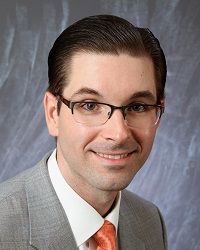

by David Flatt
Synopsis: Contrasting today’s sad state of ethics and honesty with the high standards outlined in the Sermon on the Mount, David reminds us that integrity is critically important in our efforts to advance Christ’s kingdom.
Again, ye have heard that it hath been said by them of old time, Thou shalt not forswear thyself, but shalt perform unto the Lord thine oaths: But I say unto you, Swear not at all; neither by heaven; for it is God’s throne: Nor by the earth; for it is his footstool: neither by Jerusalem; for it is the city of the great King. Neither shalt thou swear by thy head, because thou canst not make one hair white or black. But let your communication be, Yea, yea; Nay, nay: for whatsoever is more than these cometh of evil (Matt. 5:33-37).
As Jesus continues to describe the ethical holiness of the kingdom, He addresses the subject of honesty. Since the Pharisees had corrupt practices regarding the general mistreatment of others, lust, and marital fidelity, we should not be surprised that they were dishonest people.
Jesus describes a fundamental issue of the Pharisees’ perversion of honesty. They were not concerned with honesty so much as they were concerned with perjury. Lying was acceptable so long as a person did not get caught lying while under oath. This is another example of their twisted view of ethics: if something was not illegal, it was ethical. Jesus dealt with this specific flaw of the Pharisees on another occasion:
Woe unto you, ye blind guides, which say, Whosoever shall swear by the temple, it is nothing; but whosoever shall swear by the gold of the temple, he is a debtor! Ye fools and blind: for whether is greater, the gold, or the temple that sanctifieth the gold? And, Whosoever shall swear by the altar, it is nothing; but whosoever sweareth by the gift that is upon it, he is guilty. Ye fools and blind: for whether is greater, the gift, or the altar that sanctifieth the gift? Whoso therefore shall swear by the altar, sweareth by it, and by all things thereon. And whoso shall swear by the temple, sweareth by it, and by him that dwelleth therein. And he that shall swear by heaven, sweareth by the throne of God, and by him that sitteth thereon (Matt. 23:16-22).
The Pharisees developed a complicated system of oath taking. Like Moses instituting a law to discourage divorce and encourage marital fidelity, the Law was intended to discourage dishonesty and encourage truthfulness (Lev. 19:12-13). Of course, this is not how they interpreted the Law. They found loopholes to legalize deceit. As long as an oath was not taken under God’s name, they thought they could be dishonest. They failed to realize that God held them accountable for every word that they spoke, whether under oath or not. Jesus said, “But I say unto you, That every idle word that men shall speak, they shall give account thereof in the day of judgment. For by thy words thou shalt be justified, and by thy words thou shalt be condemned” (Matt. 12:36-37).
Has our society forgotten what honesty means? Perhaps a basic definition of the term would be helpful for us to consider. The word “honest” means “honorable in principles, intentions, and actions; upright and fair; gained or obtained fairly; sincere; unadulterated; respectable; having a good reputation; truthful or credible” (Dictionary.com). None of these terms described the Pharisees. They were leaders without integrity. Although they deceitfully worked to conceal their corrupt practices through hypocrisy, Jesus exposed their true character.
The qualities of honesty and integrity seem lacking in our society. Many people seem to be most concerned with self-preservation. Everyone seems to be out for themselves. If that means being deceptive and manipulative, so be it. Like the Pharisees, those in positions of leadership today have little regard for truth. Today, people call truth “fake.” When confronted with facts, people offer “alternative facts.” John Adams once wrote, “Facts are stubborn things; and whatever may be our wishes, our inclinations, or the dictates of our passions, they cannot alter the state of facts and evidence.”
Years ago, people described how absolute truth does not exist in attempts to redefine morality. Today, we are seeing the effects of such a humanistic worldview. Ethics are now being redefined. Yes, society is quite a mess. Habakkuk, an all-but-forgotten prophet, lamented the lack of integrity in his day when he wrote, “Law is paralyzed, and justice never goes forth. For the wicked surround the righteous; so justice goes forth perverted” (Hab. 1:4).
Today, dishonest dealings have led to an ever-present suspicion among people. Love assumes the best; whereas, deceit causes many to assume the worst in everything and everyone (1 Cor. 13). Our leaders are keen on their perception of this present suspicion. They manipulate the masses by feeding the public’s insatiable suspicion and paranoia. Is what is said, reported, posted, or tweeted true? Well, if the information feeds the public’s suspicion and self-interest, they believe it, and promote it. Therefore, our leaders are not solely responsible for the erosion of integrity: we share in the blame. It would seem that what Habakkuk decried all those years ago also applies to our present time.
Before we quickly pass over this brief point in Jesus’ sermon, we would be wise to pause and prayerfully reflect on what He commands. Citizens of His kingdom must be honest people. They are to keep their word and honor their commitments. They are to be truth seekers. They are to be promoters of truth. Honesty is an indispensable asset in gaining a reputation which inspires others to become part of the kingdom.
First of all, honesty produces integrity and justice. The law being ignored and or unfairly applied is proof of dishonest leadership in any context. On a personal level, honesty is that necessary condition of heart which enables people to accurately discern their standing before God and adjust their morals and ethics accordingly. As James wrote, God has called us by the word of His truth. Unless we meekly receive His word, we will be like a man who looks in a mirror but does nothing about his disheveled appearance (Jas. 1:18-25). Few are willing to be truly honest with themselves. As Jesus explained, men are often afraid of having light expose their hearts, because their deeds are evil. Only those who are true come to the light (John 3:19-21).
Second, honesty is what compels people to admit wrong and seek reconciliation with those whom they have hurt. When King Solomon petitioned God’s presence at the dedication of the Temple, the Lord mentioned Solomon’s father, David. The Lord remembered David as a man of integrity (1 Kings 9:4). With all of David’s failings, how could he have been remembered as a man of integrity? David admitted when he was wrong and passionately sought reconciliation (Ps. 51). Being accountable and making amends are not signs of weakness, but marks of integrity.
Third, honesty is attractive. A leader is not a leader unless he has followers. From this perspective, it seems the Pharisees were leaders without followers. They were disingenuous, and everyone knew it. Contrast this with Jesus. Jesus could not go anywhere without people following Him. There were many reasons why people followed Jesus, but not least among those reasons was His authenticity.
Fourth, honesty produces openness and transparency. There was no pretense about Jesus. When Pilate questioned the Lord about His ministry, He declared that He did nothing in secret:
Jesus answered him, I spake openly to the world; I ever taught in the synagogue, and in the temple, whither the Jews always resort; and in secret have I said nothing. Why askest thou Me? Ask them which heard Me, what I have said unto them: behold, they know what I said (John 18:20-21).
We could learn a great deal from the openness and transparency of Jesus. All too often, we quietly attempt to advance our self-interest without others knowing. We spin the truth. We speak in broad generalities. Rather than being forthright, we withhold the whole truth. Even more brazenly, some simply refuse to give explanations for their actions. None of this was true regarding the One who we are supposed to be exemplifying. Jesus had nothing to hide, and neither should we.
Honesty is indispensable in helping to advance the kingdom of God on earth as it is in heaven. As was briefly mentioned, truth and love go hand in hand. Truth and love are the foundation of all relationships. Therefore, these qualities will most certainly empower the kingdom on earth to advance. We will not find better traits to give us and the cause of Christ a reputable name in the world. Having a blameless and harmless reputation is how we illuminate the light of Christ in this dark world (Phil. 2:12-16).
Rather than feeding suspicions with deceit and self-interest, let us pursue truth and justice, no matter the price. Paul wrote, “Finally, brothers, whatever is true, whatever is honorable, whatever is just, whatever is pure, whatever is lovely, whatever is commendable, if there is any excellence, if there is anything worthy of praise, think about these things” (Phil. 4:8). Where might we find what Paul identifies in this passage? Let us begin our search in Jesus and this sermon.
Author Bio: David and his family have labored with the Thayer Street congregation in Akron, Ohio since 2008. The church website is thayerstreetcoc.org. He can be reached at dflatt85@yahoo.com.

